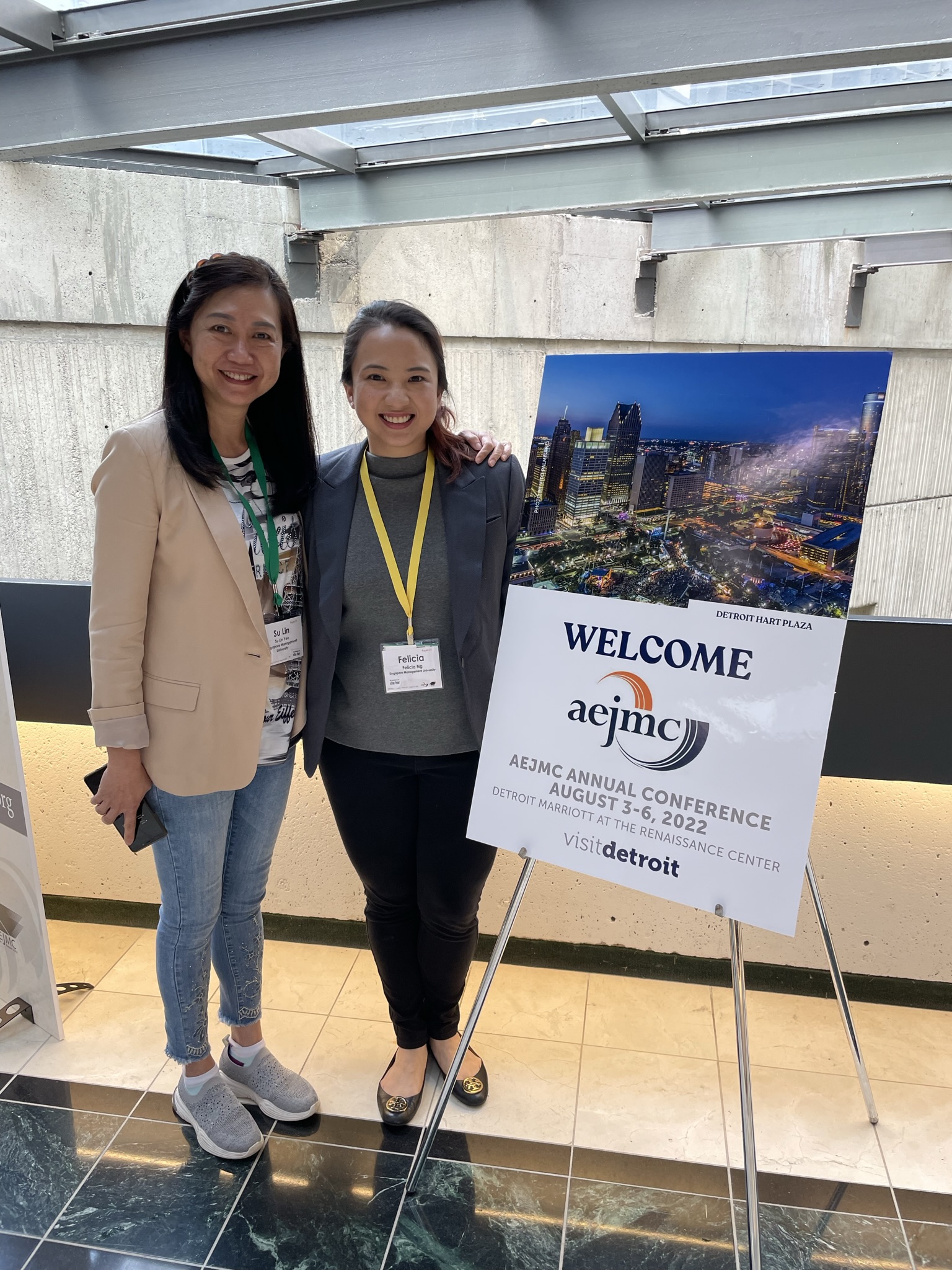
A study titled ‘News media coverage on end-of-life issues and conversations in Singapore: Implications for public health policy’ by a team of students from Singapore Management University’s (SMU) Lee Kong Chian School of Business, has clinched the Eason Award for Graduate Student Research (Third Place) by the Association for Education in Journalism and Mass Communication (AEJMC). Their achievement is particularly notable because this was the first time that a group of masters students, facing stiff competition from peers including PhD holders, had achieved this recognition at a prestigious international conference.
The winning team from SMU’s Master of Science in Communication Management programme comprised Felicia Ng, Melvin Tan, Terence Tay and Jennifer Li. In the study, the team sought to uncover the extent of coverage given by Singapore media to end-of-life (EOL) issues. It has become a national imperative to improve EOL care, considering that Singapore is home to one of the fastest-ageing populations in the world. Yet, despite the inevitability of death, many Asians dread thinking and talking about dying even with cognisance of death’s impending eventuality.
Given the sensitivity of EOL issues and difficulty in directing the public’s attention to this topic, the team embarked on the study with an objective of providing a roadmap for public health communication practitioners to engage the population. As few studies focus on media as a critical component and influence on health policy agenda, the team hoped that their research would uncover insights that might help public health communication practitioners to overcome the barriers of initiating EOL communication and to promote better EOL care in Singapore.
Commenting on the team’s achievement, Melvin said, “We are very happy with this recognition as it is a testament of the contribution that our research topic will have on existing literature surrounding communications and end-of life care.”
“Juggling academic, professional work and personal commitment is not easy,” added Terence. “Without the relentless and unconditional support from our mentor, Prof Yeo Su Lin, we would not have made it so far. Her guidance allowed us to not only stay focused on our goals, but also allowed our camaraderie to be established organically. With a strong cadence of meet ups, we were able to stay truly committed to this project as a team.”
The key findings uncovered by the study were:
- Singapore mainstream media has provided little emphasis and attention on End-of-Life related issues beyond patient and medical treatment.
- Without mainstream media taking the lead to highlight this topic for the public to think and have deep conversations with their family members and friends, Singaporeans cannot move forward with advanced care planning as the society ages and healthcare becomes critically essential.
The study called for Singapore policy makers and mainstream media to adopt holistic views when framing the importance of gaining deeper understanding of EOL issues. This was especially critical given that EOL issues represent a multi-faceted life concern that would affect everyone in Singapore sooner or later. To address the public’s lack of knowledge and appreciation for this concern, the study recommended an integrated approach syncing mass and social media to generate publicity and engagement, to overcome the taboo of initiating conversations around EOL.
AEJMC is a global non-profit, educational association of journalism and mass communication educators, students and media professionals. The total number of Full Papers submitted for AEJMC 2022 was 1000, of which only 794 were accepted. At a more granular level, Faculty and Student Submissions numbered 424 while there were 370 Student Only Submissions. All research papers were blind reviewed, typically by a number of invited reviewers in addition to another award committee which evaluated, rated and decided on the winning papers.
“To be able to elevate our capstone project beyond Singapore and present at an international conference is an honour and privilege,” commented Felicia. “It was an eye-opening and humbling experience to have listened to great, impactful research pieces and met likeminded scholars and esteemed faculties for intellectual exchanges.”
“Truth is, we are still not done with this study as we now need to work on getting the paper published in a health communication journal,” added Jennifer. “This recognition helps us to stay motivated to scale “greater heights” as we continue to learn and push academic boundaries in the coming months.”
